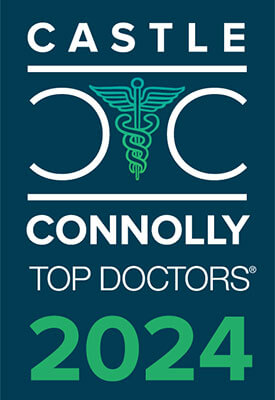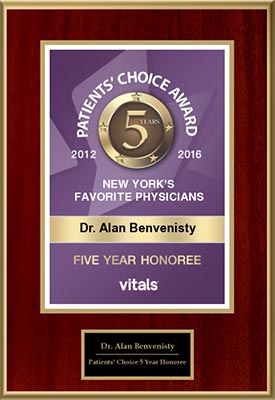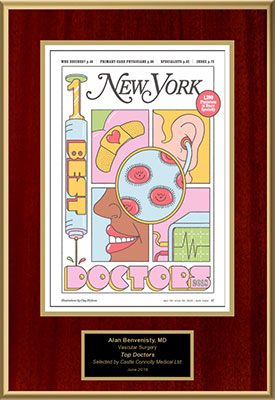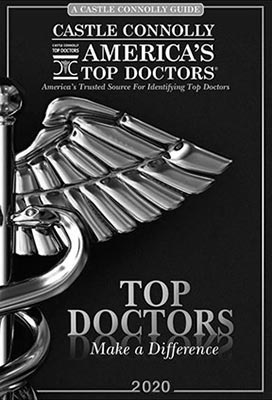Causes and Symptoms of Thoracic Aortic Aneurysms

The thoracic aorta, the portion of the aorta that runs through the chest, is susceptible to a potentially life-threatening condition known as a thoracic aortic aneurysm (TAA). An aneurysm occurs when the walls of a blood vessel weaken and bulge, creating a risk of rupture or dissection. Thoracic aortic aneurysms can develop gradually over time, often without symptoms, making early detection crucial for effective management and prevention of complications. The following are some of the causes and symptoms of thoracic aortic aneurysms, as well as the risks involved with this vascular condition.
Causes of Thoracic Aortic Aneurysms
The most common cause of thoracic aortic aneurysms is atherosclerosis, a condition characterized by the buildup of plaque in the arteries, often associated with chronic hypertension, high cholesterol and smoking. Over time, the accumulation of plaque can weaken the walls of the aorta, leading to the formation of an aneurysm. However, there are other possible causes, including:
- Genetic Factors: Genetic conditions such as Marfan syndrome, Ehlers-Danlos syndrome, and familial thoracic aortic aneurysm and dissection syndromes (FTAAD) can predispose individuals to thoracic aortic aneurysms. These conditions may affect the structure and integrity of the aortic wall, increasing the risk of aneurysm formation.
- Trauma: Traumatic injuries, such as blunt force trauma or deceleration injuries, can cause damage to the aorta and lead to the formation of an aneurysm. Traumatic thoracic aortic aneurysms are often associated with high-impact accidents or falls.
- Inflammatory Conditions: Inflammatory diseases such as giant cell arteritis, Takayasu arteritis, and syphilis can cause inflammation of the blood vessels, including the aorta. Chronic inflammation can weaken the arterial walls and increase the risk of aneurysm formation.
- Infection: Infections of the aorta, such as syphilis or bacterial endocarditis, can weaken the vessel wall and predispose individuals to the development of an aneurysm. In some cases, untreated infections can lead to the formation of infected (mycotic) aneurysms.
Symptoms of Thoracic Aortic Aneurysms
In many cases, thoracic aortic aneurysms do not cause symptoms and may be discovered incidentally during imaging studies for unrelated conditions. As the aneurysm enlarges, however, it can exert pressure on surrounding structures or lead to complications such as rupture or dissection. Symptoms can include:
- Chest or Back Pain: Pain in the chest or upper back is a common symptom of thoracic aortic aneurysms, particularly if the aneurysm is large or rapidly expanding. The pain may be dull, sharp, or throbbing in nature and may radiate to the neck, shoulders, or arms.
- Difficulty Breathing or Swallowing: Enlargement of a thoracic aortic aneurysm can compress nearby structures, including the trachea (windpipe) or esophagus (food pipe), leading to difficulty breathing or swallowing.
- Hoarseness: Compression of the recurrent laryngeal nerve by an enlarged thoracic aortic aneurysm can cause hoarseness or changes in voice quality.
- Coughing or Wheezing: Compression of the bronchial tubes or lung tissue by an enlarged thoracic aortic aneurysm can lead to coughing, wheezing, or respiratory symptoms.
- Pulsatile Mass: In some cases, a large thoracic aortic aneurysm may be palpable as a pulsatile mass in the chest or abdomen, particularly if it is located close to the body’s surface.
Thoracic aortic aneurysms pose significant risks to individuals due to their potential to lead to life-threatening complications if left untreated. A ruptured thoracic aortic aneurysm can result in severe internal bleeding, leading to shock, organ damage, and even death if not promptly addressed. Additionally, the location of the aneurysm along the aorta can impact nearby structures and vital organs, such as the heart, lungs, and spinal cord, increasing the risk of complications such as aortic dissection, stroke, or paralysis.
Thoracic aortic aneurysms can develop due to a variety of causes and may result in symptoms that can alert patients to their presence and risk of tearing or rupturing. Early detection and appropriate management are essential for reducing the risk of complications and improving outcomes for individuals with thoracic aortic aneurysms. If you experience any symptoms suggestive of a thoracic aortic aneurysm, it’s important to seek a medical evaluation and treatment from a vascular specialist like Dr. Alan Benvenisty, MD. Contact the office of Dr. Benvenisty in NYC to schedule your evaluation.
Posted on behalf of
440 West 114th St, Second Floor
New York, NY 10025
Phone: (212) 523-4706
Monday & Friday 9:00 AM – 5:00 PM







